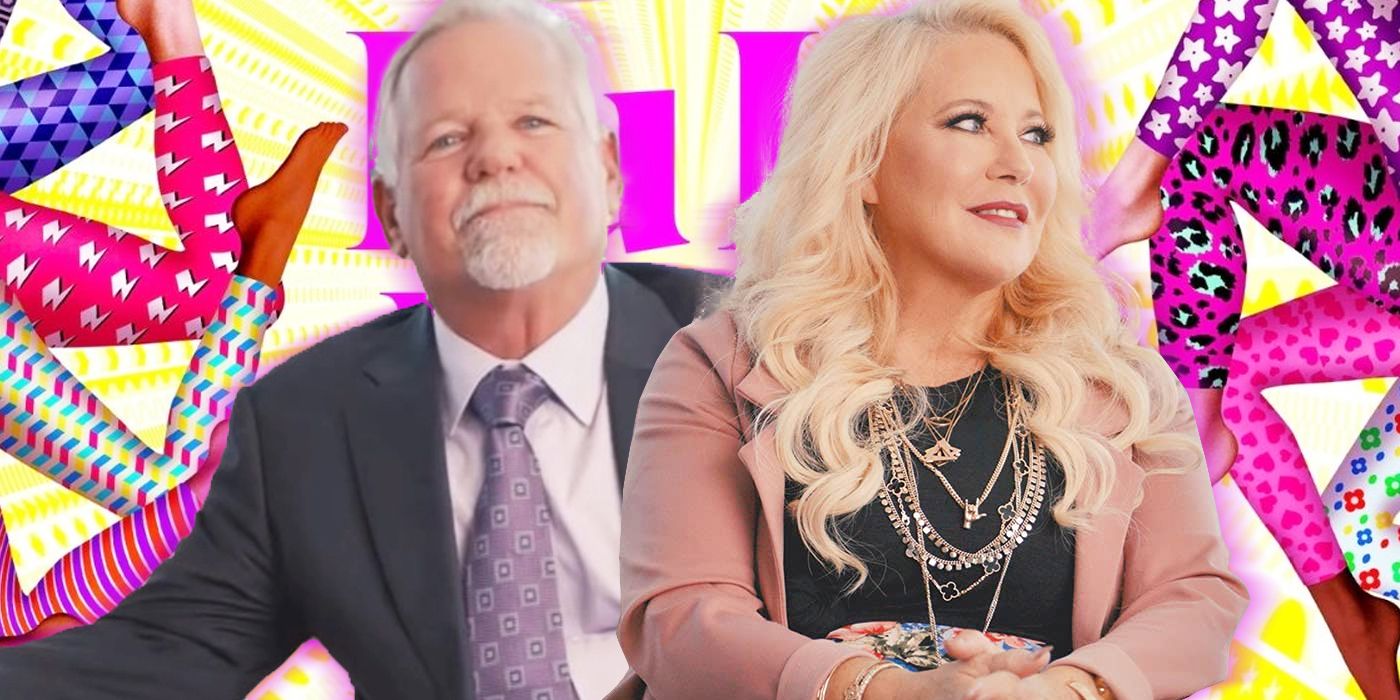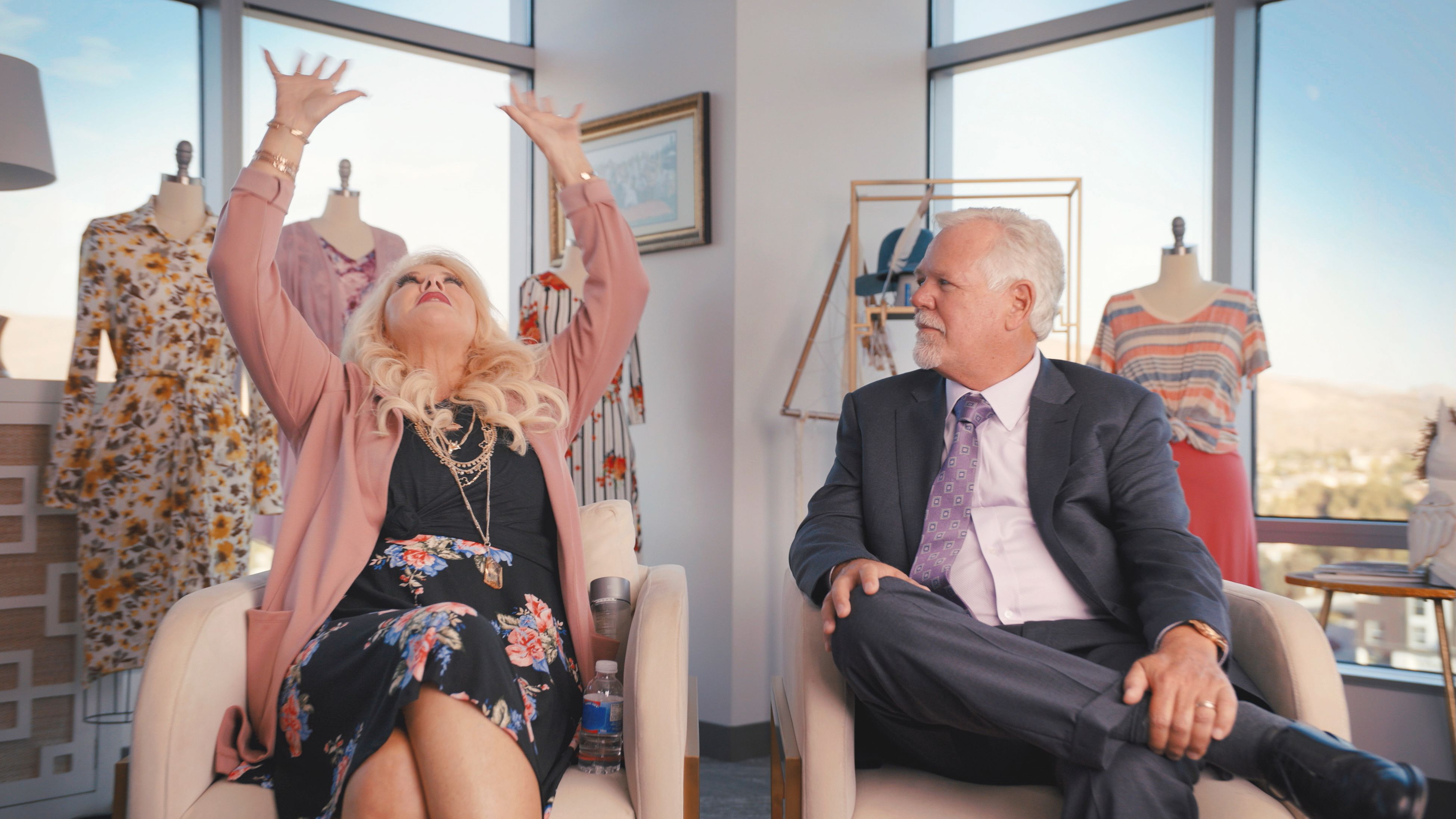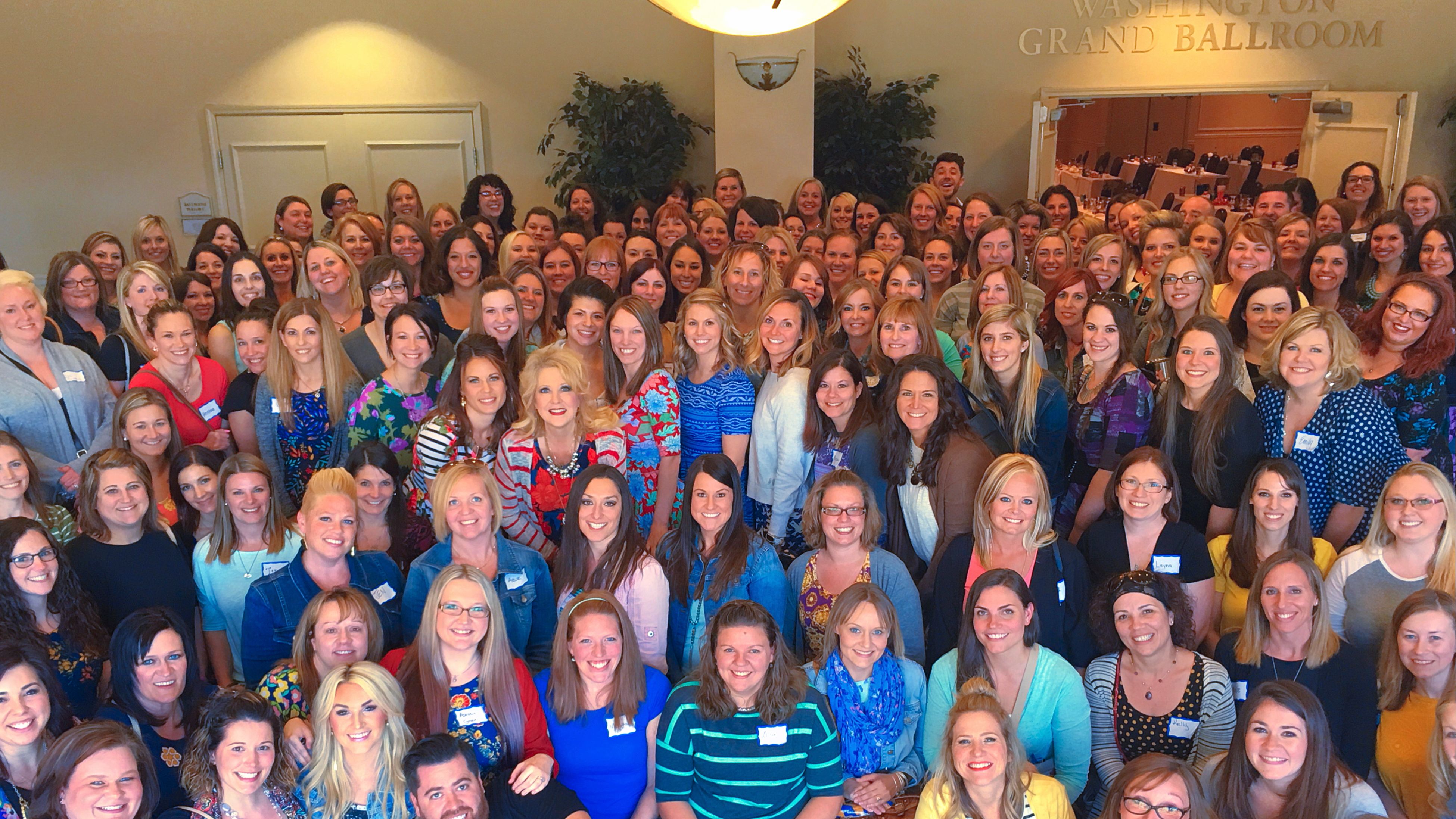Amazon Prime Video has a hit on its hands with its very own over-the-top docuseries, LuLaRich. No one's getting their arms ripped off by tigers, but the four-part special is nonetheless full of larger-than-life characters and jaw-dropping moments, plus lawsuits that'll have more of an impact on most people's lives than to what extent zoos are regulated. That's because LuLaRich -- whose title is a play on the company name, LuLaRoe -- tells the riveting, often insidious and all-too-common story of how multi-level marketing schemes metastasize their way into American life.
It's not surprising that LuLaRich premiered to an already-interested audience. As the series depicts, more than 80,000 people signed up to sell the company's wares, and exponentially more people purchased them. Everyone with a Facebook account circa 2016 has heard of LuLaRoe, the direct sales fashion retailer started by Deanne Brady and Mark Stidham, and everyone who kept active on Facebook in the years since likely scrolled through its downfall. LuLaRich gives a chair and a microphone to a wide array of vested parties, with surprisingly little interference from filmmakers Jenner Furst and Julia Willoughby Nason, who previously made the documentary Fyre Fraud for Hulu.
What makes LuLaRich binge-worthy is the willing participation of the company's founders. Their story begins with some questionable bootstraps mythology. Deanne and Mark were both previously married and had too many kids to count between them, some of them adopted, and two of whom (in one of the show's crazier revelations) married each other. According to Mark, the worst thing in the world was having a regular job that paid $400 a week. He yearned to be an entrepreneur, as Deanne's mother was. When Deanne shares what she thinks is an endearing anecdote about how Mrs. Startup (her mother's actual name) tossed thousands of dollars of bills in the air for her children to scramble after, the viewer senses that, rather than lay out its point, LuLaRich is going to let the Stidham's paint a not-very-flattering picture of themselves.
The Stidhams are a garish study in contrasts. The clothing they peddled was modest on the downlow (they're Mormon), but Deanna wielded such control over consultants' appearances, she pressured them into gastric sleeve surgery in Tijuana, all so they could look hotter. They espouse hard work, but gave choice corporate positions to unqualified family members, rarely seen at the offices. They used a poppy, shallow feminist aesthetic to entice stay-at-home moms to be "girlbosses," but promoted some disgustingly backwards "rules" about femininity, including exchanging sexual favors with one's husbands for money and goods. Though Deanne started the brand with skirts of her own design, when asked to talk about female empowerment, Mark deigns to answer for her.
But by far, the most noteworthy cognitive dissonance on display is how the Stidhams see themselves: as saviors who are "blessing lives" instead of taking advantage. Self-delusion is a major theme in LuLaRich. Because the docuseries stitches together the Stidhams' interview with depositions, it's obvious they're being careful not to incriminate themselves. To assume they've bought into their own fantasy would be to excuse them of wrongdoing, but the Stidhams are so relentlessly positive and self-important, one has to wonder. Both increasingly behave like cult leaders as the company grows, and Mark openly preaches as if he is a prophet at what are supposed to be business conferences about leggings.
If LuLaRoe was only selling leggings, or even clothing franchises, there'd be no problem and no TV show. That's what the company seemed like it was doing when the first round of sales reps bought wholesale stock off of Deanne. She's correct when she says America's moms are an under tapped resource, and in an inflexible economy that doesn't value them, any opportunity to make some cash on their own terms seems too good to be true. Since LuLaRoe consultants managed unique boxes of inventory that cost $5,500 but sold well, it didn't appear to be a pyramid scheme. Early adopters tell the camera how life-changing it was...at first.
But before long, LuLaRoe adopted a "downline" structure in which consultants made significantly more money "onboarding" other consultants than they did selling clothes. As those recruited skyrocketed, the quality plummeted. Defective and poorly designed product (some prints resembled genitals) was, of course, harder to unload, especially when there were suddenly several saleswomen for every cul-de-sac. Still, LuLaRoe's phony sisterhood culture -- complete with cruises and Katy Perry concerts -- deluded participants at the top and bottom of the pyramid into believing they were part of something real and stable. These (mostly white) women led one life, shown to be as perfect as possible, on Facebook, while in real life, they were stressed to the brink, losing cars, houses and spouses.
As an expert on MLMs explains, more than 80 percent of those who join schemes like LuLaRoe have no one beneath them in the pyramid and can be ruined by the experience. Selling leggings, women broke even at best and many lost thousands. Selling belonging -- especially at the peak of the LuLaRoe hysteria -- could make them up to seven figures. Some in that top tier came to accept that their involvement was predatory, while others still think of themselves as the Stidhams do: as people who simply hustled and made money.
The LuLaRoe fiasco couldn't have happened if not for the intersection of several societal phenomena and failures. As moms struggled to find community and achieve a comfortable middle class life, the rise of social media, the prominence of consumer culture, the proliferation of MLMs and poor enforcement of laws that were supposed to keep them in check all seemed to conspire against these women. But sisterhood and social media were also a balm. LuLaRoe still exists today. However, thanks to hoards of former consultants who found each other on Facebook and lawyered up, the company has begun to be held responsible.




